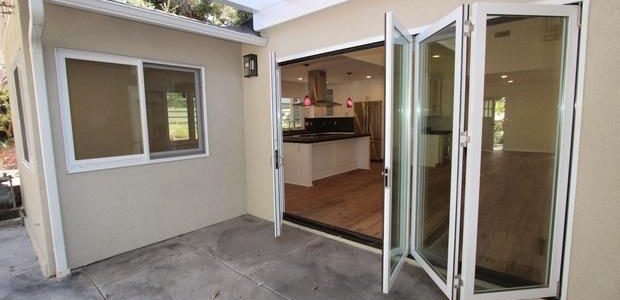Over time screws used to hold a hinge in place start to work their way free causing the door to sag.
House settled sliding glass door no longer closes tight.
After a bit of adjustment the door should roll easily without rubbing on the bottom track.
The hinge side of the door is often the source of closure issues.
Continue tightening and checking until the door no longer sticks.
It s rare but you might find that you can t draw in a hinge at all because the jamb is already tight against the framing or shims.
Close the door to check the fit.
If you begin to create gaps at the trim joints stop.
If the door is rubbing against its frame after securing the trim and frame it may be that your house has settled and the doorway is crooked.
Keep an eye on the door trim as you tighten.
If the door becomes even harder to open turn the screw in the opposite direction.
After each pass hang the door on the hinges and close it to test the fit.
Read on to learn how to adjust your sliding glass door.
Place a 3 inch screw in the hole.
Keep the track clean and lubricated.
Firmly push the plane toward the center of the door to shave off a small amount of wood.
If it binds near the top you will need to work on the upper hinge.
If the door doesn t close properly or is slamming adjust the closing rate screw and try again.
Drive the screw in with authority to penetrate all the way through the jamb into the.
Doors that are too tight can get stuck on the bottom track and there s nothing more frustrating than a sliding door that won t properly open or close.
Repeat the shaving and hanging process until the door opens and closes smoothly.
Turning this screw raises or lowers the roller.
Check the door for tightness.
As a result the door may scrape the door frame when closing or may no longer properly meet the latch side strike plate.
Place a block plane on the outside edge of the door nearest to where you marked the problem area.
Remove the top screw in the top hinge if the door still won t close properly.










